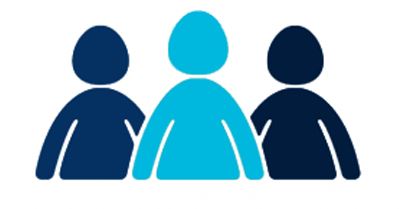Y13 Results Day and Appeals

Year 13 Results Day and Appeals Information
While the Post-16 Centre will not be open today, the Post-16 team will be available to help and support students throughout the day via telephone should you need advice or guidance following receipt of your results. We recommend you follow this process before contacting us.
- It may be that you have done better than expected in your A Levels. If this is the case then CLICK HERE to get clear guidance on what to do next using ‘UCAS Adjustment’.
- For some of you who may not have met the conditions of the course offers you accepted your first course of action is to check your status on UCAS Track. If they have not offered you a place, you should call your preferred university to have a conversation as to what courses may be available for you to access. You should also consider using the ‘UCAS Clearing+’ service which will filter the information they send to you to show only the courses you are interested in. CLICK HERE.
- If after doing this you wish to speak to a member of the Post 16 team about university applications, please email post16@wbs.school and staff will be standing by to help as needed. In your email please include:
- Name
- Preferred phone number
- As clear a descriptin as possible of the issue.
- Sarah will then email an appointment time back to you.
Appeals
If a student does not agree with their final grade, they can appeal against the grade they have been awarded, by completing the ‘JCQ Student Request Form for Centre Reviews and Appeals to Awarding Organisations’ form. In order to ensure students have the best opportunity to progress to their next stage of learning or employment, appeals should be made as soon as possible after exam results are known. Please send the form directly to grades2021@wbs.school.
All students have had access to the evidence used when teacher judgement has been used to generate the ‘Teacher Assessed Grades’, via Brightspace Gradebook. In addition, the ‘Centre Policy’ explaining how this evidence will be used has been sent home to families via email. All students who have been identified as passing the threshold for Special Circumstances this year have been notified of this.
What may happen to your grade during the centre review and appeals process?
If you request a centre review or an awarding organisation appeal, there are three possible outcomes:
- Your original grade is lowered, so your final grade will be lower than the original grade you received.
- Your original grade is confirmed, so there is no change to your grade.
- Your original grade is raised, so your final grade will be higher than the original grade you received.
Once a finding has been made you cannot withdraw your request for a centre review or appeal. If your grade has been lowered, you will not be able to revert back to the original grade you received on results day.
There are two stages to the summer 2021 appeals process:
Stage 1: Centre review:
If a student does not consider that they have been issued with the correct grade, they can ask the school to check if an administrative or procedural error has occurred. A procedural error means a failure to follow the process set out in the centre policy. An administrative error means an error in recording your grade or submitting your grade to the awarding organisation. Schools have to ensure that the student is aware that their grade could go down, up or stay the same if they make this request. If the school finds that an error has occurred, they will submit a request to the awarding organisation to correct the error and amend the grade without the need to make an appeal to the awarding organisation.
Students should submit a request for a centre review by 16 August 2021 for a priority appeal, or by 3 September 2021 for non-priority appeals.
What is a priority appeal? - A priority appeal is only for students applying to higher education who did not attain their firm choice
(i.e. the offer they accepted as their first choice) and wish to appeal an A level or other Level 3 qualification result. You should inform your intended higher education provider that you have requested a centre review or appeal).
If an error is not found, the student can request that the school submits an appeal to the Awarding Body on their behalf.
Stage 2: Appeal to the awarding organisation:
A student can only request an awarding organisation review once the centre has completed its ‘Centre Review’.
The second stage of the process is referred to as an appeal to the awarding organisation (submitted by the centre on the student’s behalf). An appeal should be submitted if the student considers that:
- the centre did not follow its procedure properly
- the awarding organisation has made an administrative error
- the student considers that the grade awarded was an unreasonable exercise of academic judgement.
- (The school must ensure the student is aware that their grade could go down, up or stay the same).
The independent reviewers will not remark or grade students’ evidence. Instead, they will look to see whether any teacher acting reasonably could have arrived at the same grade using the evidence.
Requests for a priority appeal should be submitted by 23 August 2021 and requests for non-priority appeals should be submitted by 17 September 2021. Priority appeals that aren’t submitted to the awarding organisation by 23 August 2021 will still be treated as a priority but they may not be completed in time for those with a higher education place dependent on the outcome of the appeal.
The school will submit the student’s appeal evidence and the evidence of the centre’s justification for the grade to the Awarding Body. The Awarding Body will then consider if the process has been followed correctly and if the TAG reflected an appropriate exercise of academic judgement.
An Awarding Body will only revise a student’s grade at appeal where it finds the evidence on which the grade was determined cannot reasonably support that grade, rather than as a result of marginal differences of opinion. A student’s grade could go up or down following an appeal. In both instances, the Awarding Body will determine whether a grade should be changed, and if so, will issue a final grade to the student. If the grade is lowered, a student will not be able to revert back to the original grade received on results day.
Stage 3: Exam Procedures Review Service
If a student believes the Awarding Body has made a procedural error in handling the appeal, they can apply to Ofqual’s Exam Procedures Review Service to review the process undertaken by the Awarding Body.
In Summary:
In summary there are four grounds upon which a centre review or an appeal to an awarding organisation may be requested:
- At Stage 1: The centre made an administrative error, e.g. an incorrect grade was submitted; an incorrect assessment mark was used when determining the grade.
- At Stages 1 and 2: The centre did not apply a procedure correctly, such as the centre did not follow its Centre Policy, did not undertake internal quality assurance, did not take account of access arrangements or mitigating circumstances such as illness.
- At Stage 2: The awarding organisation made an administrative error, e.g. the grade was incorrectly changed by the awarding organisation during the processing of grades.
- At Stage 2: The student considers that the centre made an unreasonable exercise of academic judgement in the choice of evidence from which to determine the grade and/or the determination of the grade from that evidence.
CONTACT
- Your first point of contact for any appeal will be through the submission of the attached ‘JCQ Student Request Form for Centre Reviews and Appeals to Awarding Organisations’. Please send this to grades2021@wbs.school. An acknowledgement will be sent back to you, before the appeal process immediately begins, ensuring you understand that grades can go up, down or stay the same.
- If you have any questions about the process or require support in filling the form in please email grades2021@wbs.school.
FAQ's
You mention “An appeal should be submitted if the student considers that the centre did not follow its procedure properly, the awarding organisation has made an administrative error, or the student considers that the grade awarded was an unreasonable exercise of academic judgement”. What does ‘unreasonable’ mean?
‘Unreasonable’ is a technical term in this context and means that no educational professional acting reasonably could have selected the same evidence or come up with the same grade. This means that just because other forms of evidence may have been equally valid to use, the selection of evidence is not unreasonable. Because of the flexibility of the approach this year, every school and college will have used different forms of evidence. When choosing evidence staff had to make a professional judgement as to which evidence best represented the cohort performance’.
You know my grades. Why can’t you tell us? What if you know we haven’t met our university conditional offer?
We are forbidden from disclosing the Teacher Assessed Grades to any third party, including students and parents, until results days. Any teacher or member of staff who does this is committing exam malpractice.
Although students may have been given marks or grades on single pieces of evidence, we cannot disclose the final submitted TAG.
What should I do if I don’t get into my first choice of university?
First, don’t panic. Speak to Mr Bowie about your options. You can arrange a phone call with him by contacting post16@wbs.school. You may wish to go through clearing, or sit the autumn exams or summer exams next year to try to improve your grade. If you are going to appeal your grade, you must let your university know you are appealing. They will then let you know whether they are willing to hold a place for you pending the outcome of an appeal (note that universities are not obliged to hold a place for you; this is at their discretion).
What's a Priority Appeal?
Priority appeals will be handled more quickly than other appeals, where possible before UCAS’s advisory deadline of 8 September. Priory appeals are only open to A level students starting university this autumn, who have missed out on the conditions of their firm or insurance offer.
If you decided not to confirm a firm conditional offer and to go through clearing instead, JCQ cannot offer you a priority appeal. JCQ cannot offer priority appeals for GCSE students, unfortunately. When making a priority appeal, students will have to include their UCAS number so it can be confirmed that it is a genuine priority appeal.
Where can I find the evidence you used to decide my grades?
Remember, all grading evidence is still being shared in Brightspace in the Gradebook for each subject, with each piece of evidence showing the rationale as to how and why that evidence was used.







